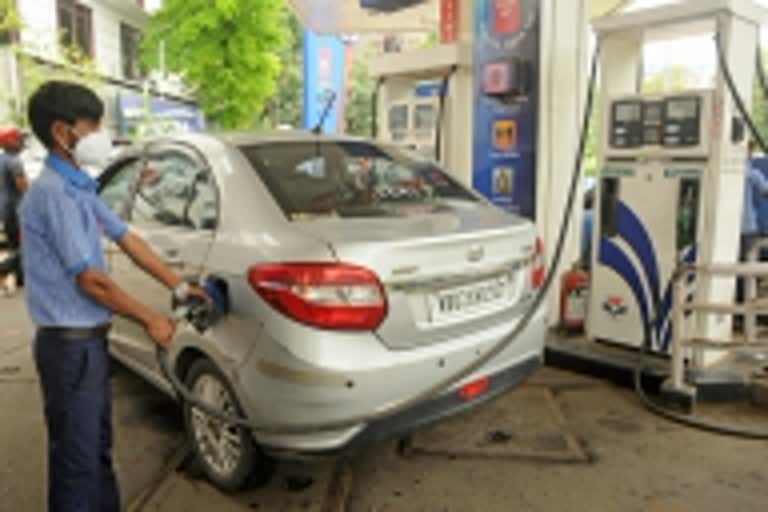New Delhi: Consumer's bearing the brunt of rising fuel prices for more than a couple of months may expect some relief over the next few days as Oil marketing companies (OMC) have begun evaluating the fall in global oil prices and its resultant impact on fuel prices in the country. The benchmark Brent crude that had risen to $77 a barrel late last month has shed more than 10 per cent in the last fortnight to reach a level of $68.85 a barrel now. If the price line remains below $70 a barrel for a few more days, petrol and diesel prices could see a cut in the coming days.
Already the impact of softening of prices in the oil market is being seen in the fuel price movement in the country. On Wednesday, the OMCs kept the retail price of petrol and diesel unchanged. This is the fourth consecutive day, the longest period in weeks, when fuel prices have remained steady. With Wednesday's pause, petrol continues to be sold for Rs 101.84 per litre, while diesel is also being sold at the unchanged price of Rs 89.87 a litre. The pump price of fuel has been static since Sunday. It rose on Saturday with petrol being revised upwards by 30 paise per litre while diesel price remained unchanged.
In the city of Mumbai, where petrol price crossed the Rs 100-mark for the first time ever on May 29, the fuel price is at Rs 107.83 per litre. Diesel price in the city is also at Rs 97.45, the highest among metros. Petrol prices in all metros have now crossed Rs 100 per litre-mark. But they have remained static the past four days.
Under daily price revision, OMCs revise petrol and diesel prices every morning, benchmarking retail fuel prices to a 15-day rolling average of global refined products' prices and dollar exchange rate. Once this 15-day cycle returns, petrol and diesel prices may fall.
Why will the global crude oil prices soften?
OPEC and allied nations Sunday agreed to eventually raise the production limits imposed on five countries, ending an earlier dispute sparked by the United Arab Emirates that roiled global energy prices. The disagreement, sparked by a demand by the UAE to increase its own production, temporarily upended an earlier meeting of the cartel. Under the new production limits, the UAE would be able to produce up to 3.5 million barrels of crude oil a day beginning in May 2022. That's below the 3.8 million barrels a day it reportedly sought. Saudi Arabia's limit of 11 million barrels a day would rise to 11.5 million, as would Russia's. Iraq and Kuwait saw smaller increases.
Since India meets nearly 80 per cent of its crude oil requirements through imports, the decision of the OPEC nations to increase supplies will help consumers in India affected by skyrocketing pump prices. OPEC+ agreed in 2020 to cut a record 10 million barrels of crude a day from the market to boost prices. It slowly added some 4.2 million barrels back over time. Beginning this August, the cartel said it separately will increase its production by 400,000 barrels a day each month. That will see it phase out its current 5.8 million barrel of oil production cut by the end of 2022 as planned by the initial agreement.
OPEC member nations include Algeria, Angola, Congo, Equatorial Guinea, Gabon, Iran, Iraq, Kuwait, Libya, Nigeria, Saudi Arabia, the UAE and Venezuela. Members of the so-called OPEC+ include Azerbaijan, Bahrain, Brunei, Kazakhstan, Malaysia, Mexico, Oman, Russia, Sudan and South Sudan.
(With Agency Inputs)



